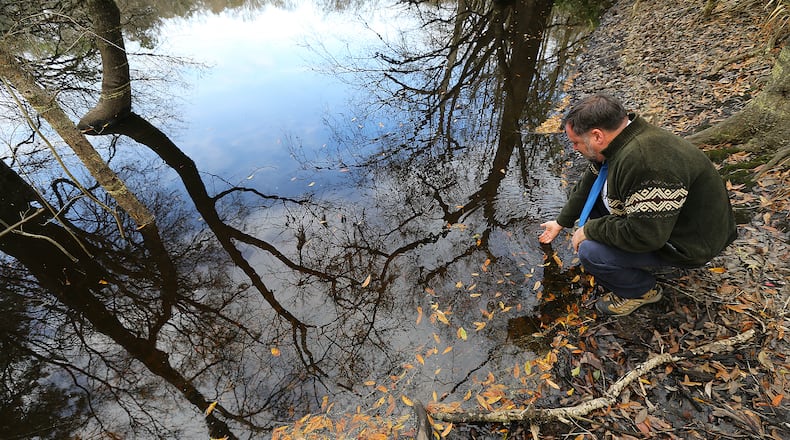Federal regulators outlined "very significant concerns" about the proposed route of a $3.2 billion Sabal Trail pipeline that would wind from Alabama through southwest Georgia to central Florida, raising new questions about the viability of the roughly 500-mile project.
The Environmental Protection Agency said Monday it recommends the natural gas pipeline's builder, Spectra Energy, reroute the project to avoid more than 1,000 acres of wetlands, the vast underground Floridan Aquifer that supplies drinking water to millions and "other environmentally sensitive areas."
It was a blow to pipeline developers who received preliminary approval in September from regulators in Washington and Georgia. The utility contends the project will provide more energy diversity and new competition across the Southeast when the pipeline is completed in 2017.
An array of opponents, though, cite safety, environmental and property rights concerns over the route, which
across five creeks and streams in southwest Georgia.
The Sabal Trail project hasn't earned as much attention as another pending project on the other side of the state. Gov. Nathan Deal and other state leaders have tried to kill Kinder Morgan's Palmetto Pipeline project, a petroleum line which would run from South Carolina to Florida through east Georgia.
But Sabal Trail's opponents have hunkered down for a fight. They plan to lobby Georgia lawmakers to block the project and urge the Federal Energy Regulatory Commission to deny it approval.
The plan's critics opened a new front last week when Georgia's Democratic House delegation - Reps. Sanford Bishop, Hank Johnson, David Scott and John Lewis - raised questions about a proposed compressor station for the pipeline in a residential, and largely minority, neighborhood in Dougherty County.
"Sabal Trail’s proposed pipeline and compressor station will further burden an already overburdened and disadvantaged African-American community in this area," they wrote in a letter to the FERC that said the six-story structure would "constitute a non-stop source of noise and vibration."
Spectra Energy spokeswoman Andrea Grover said Tuesday the firm had no immediate comment. The company has previously argued that it will use cutting-edge technology to reduce emissions from its air compressors, and that the use of high-strength steel in the pipelines will prevent the natural gas from contaminating drinking water and aquifers.
About the Author
The Latest
Featured



